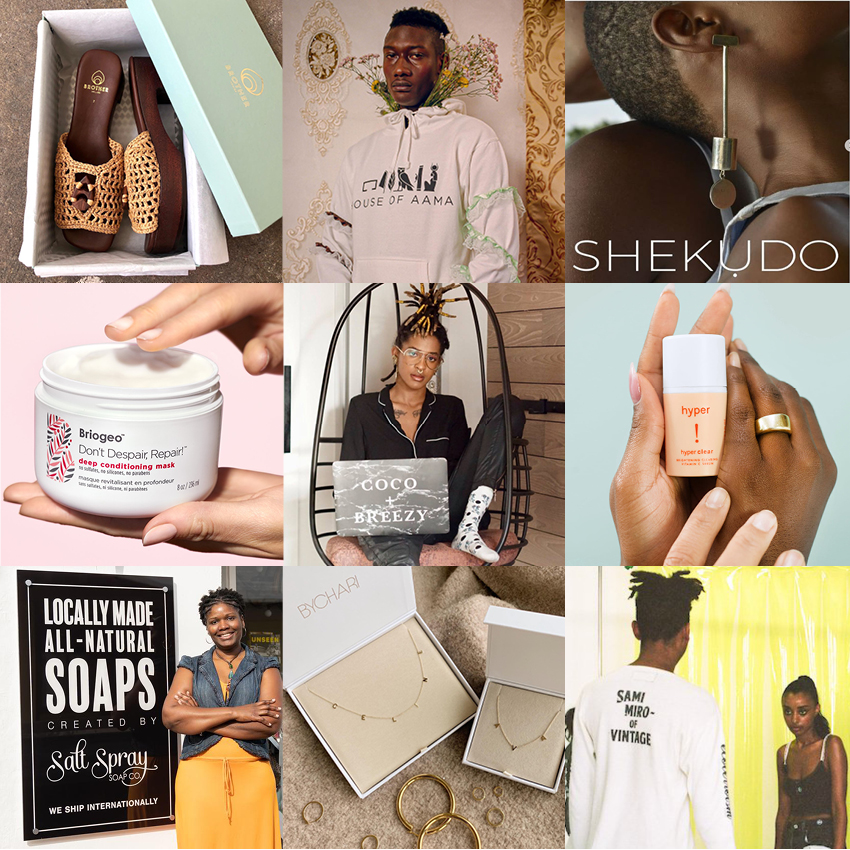The pandemic, in combination with the demand for racial justice, has brought out the best and the worst of the retail and fashion industries, forcing us to examine more closely the brands we give our money to.
Free Pass
Most of the fashion industry has, for too long, been unable to uproot itself from its deeply embedded history of racial and class biases. Suddenly, though, voices demanding change have grown louder and the industry’s day of reckoning is finally upon us. Over the past few months, as the Black Lives Matter movement swept (and continues to sweep) across the nation, numerous well-known brands and media companies from the “It Girl” sustainable fashion brand Reformation to the modern woman’s lifestyle brand Refinery-29 have been called out for some serious allegations involving discriminatory workplace cultures and instances of racial biases towards both employees and customers. It’s ironic because these two brands were applauded for their commitment to sustainability and female focused workplaces, so the fact that they have been unable to hold a similar standard for their brand in terms of racial equity feels almost like a betrayal to the young consumers who have supported them. Why should we have to choose holding brands accountable for their impact on the environment, their support of female leadership or their conscious efforts to promote racial equity within the workplace? Succeeding in one area of social justice should not give them a free pass on the others.
Accountability
I understand that tackling the multitude of the world’s problems is a seemingly insurmountable task to require of clothing brands, but surely we can expect them to uphold the most basic of human rights. The word “betrayal” may sound a bit dramatic, but for the consumer who recognizes that where their money goes potentially affects larger social issues, a brand’s false declaration of diversity and inclusivity does, indeed, feel like a betrayal.
In the pre-pandemic days, brands were cautioned against joining political discourse as it seemed nearly impossible to compose a message around politically charged topics without offending large numbers of consumers. Navigating a world in which people hold opposing views on a wide range of subject matters proves to be somewhat of a minefield for brands attempting to take a stand politically. The exception to this rule was Benetton, which stretched the limits of social justice messaging in the 1990s by taking a stand. Its provocative advertising became a lightning rod for the industry, making some people feel uncomfortable and causing controversy for over a decade.
Nowhere to Hide
But these are no longer pre-pandemic days, and there is too much at stake for the entire human race to sit idly by. Furthermore, consumers expect brands to be on the right side of history and to use their platforms and voices as catalysts for change. How they do this in a completely transparent digital age is even more critical now.
Brands are quickly learning that instagramming a solid black square and tweeting a vague sentence or two in solidarity with the Black Lives Matter movement does not convince their customers. If anything, it spurs an onslaught of vehement responses calling out these brands for doling out performative and disingenuous statements. And consumers are watching closely to see what these brands do next to make it right. Or not.
More specifically, according to a McKinsey & Company Report and Survey, Gen Z consumers hold brands to a certain moral standard and expect them to not only take a passionate stand in support of an ideal, but to follow these words up with tangible actions. For example, if a brand professes its support of the Black Lives Matter movement but lacks diversity and inclusion within its own workplace, Gen Z consumers will notice and call out any discrepancies. An impressive 70 percent of respondents to the survey say they try to purchase products from companies they consider ethical. About 65 percent try to learn the origins of anything they buy (where it is made, what it is made from, and how it is made and how it’s distributed). And 80 percent refuse to buy goods from companies involved in scandals. However, the survey also states that consumers, particularly Gen Zers, are tolerant of brands when they make mistakes and are willing to forgive if past mistakes are corrected.
Making Amends
Now there seems to be an inkling of hope for brands who have failed and fallen, but consumers expect – even demand — substantial changes accompanying the apology. The resignation of a CEO is, perhaps, a good step one, but there are many more steps to follow if brands are truly addressing the systemic issues that have hindered and hurt both employees and customers.
For brands that have fumbled, the road to redemption is long but not impossible. For brands who, thus far, have remained unscathed whether due to luck or genuinely ethical and moral standards, they must try just as hard to take the necessary steps towards advocating for diversity and inclusion in the workplace. A pledge and call to action are imperative, but only preliminary efforts. The subsequent actions are where brands can effect the most change. They should take a page from Sephora’s book and dedicate increased efforts towards sensitivity training and education on racial profiling in retail spaces. Along with this, Sephora also became the first brand to sign the 15 Percent Pledge, a campaign calling on large retailers to donate 15 percent of their shelf space to black-owned businesses. Aurora James, the founder and creative director of the shoe brand, Brother Vellies, launched the campaign on Instagram and has since garnered multiple pledges from retailers including West Elm, Rent the Runway, Who What Wear and more.
There is still so much to be done in the fight for a more equitable industry and these initiatives are just the beginning. Until we see employment programs specifically dedicated to achieving racially balanced workplaces; leadership positions and board rooms representative of Black voices; diversity and inclusion training programs for everyone, from employees to management to C-level executives; and authentic change, the demands cannot stop.
While each of us continue to do our part impacting positive change and holding the brands we love accountable for their actions or lack thereof, here are a few Black-owned businesses young consumers can support for their ethics and style. https://www.thenilelist.com/
Fashion:
Beauty:
Briogeo Hair Care – Natural Performance Based Hair Care
Jewelry:





